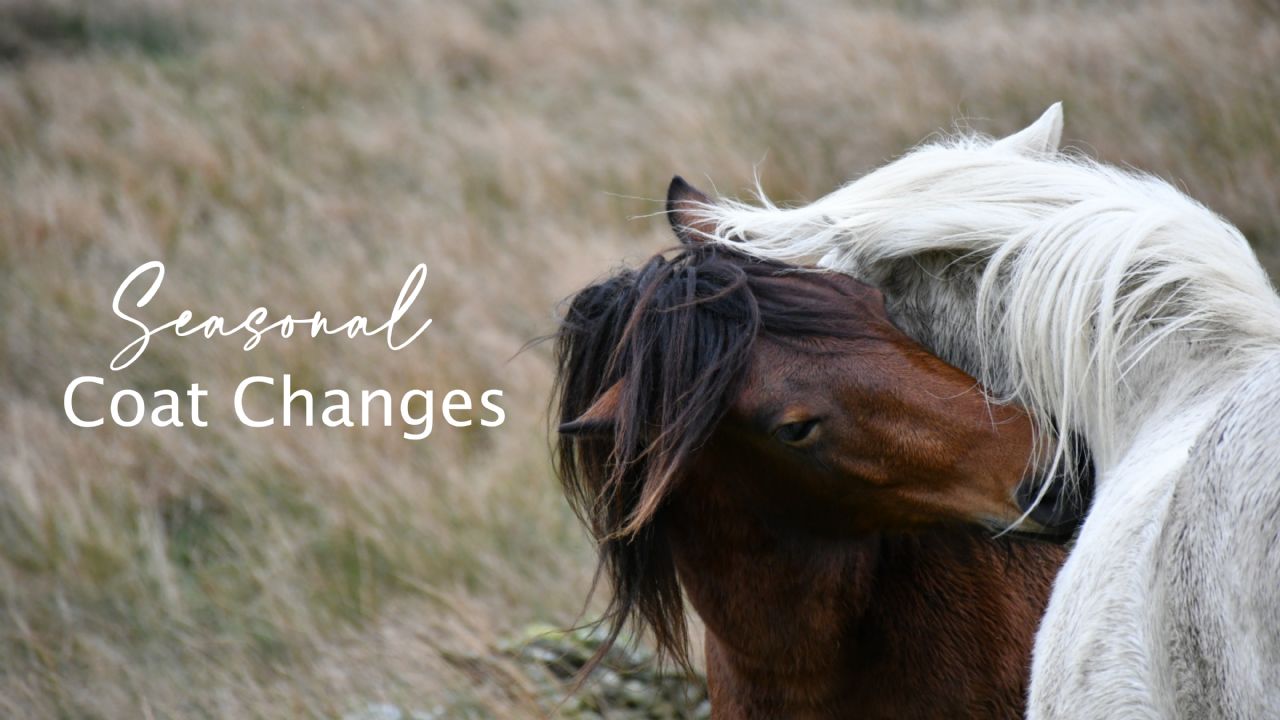Why do we recommend feeding horses from ground level?
How does the horse's jaw work? What happens if horses eat above ground level? Read the article to learn more...

Horses are now well into their ‘Blackberry coats’. There is an old saying that “no horse looks well at blackberry time” as the blackberries often appear when our horses are setting their winter coats, losing their summer dapples and the cooler weather means there is less goodness in the grass.
Changing coat is a result of seasonal hormonal changes, directly linked to metabolism. As such it can be much more demanding of the horse than we think. Horses may be itchy, tetchy and even lacking in energy - all signs that they may require additional dietary support during 'blackberry season'.
Vitamin A, quality protein and omega 3 fatty acids play an important role in promoting healthy coat condition, and ensuring adequate supply can be particularly beneficial during coat changes.
Beta-carotene is present in green forage and is the precursor to Vitamin A. Horses have no requirement for true Vitamin A in their diet as they make their own from the beta-carotene in the green food they eat, in the exact quantities that they need. When grazing quality is reduced or poor, consider adding green forages to the diet via the feed bowl. Lucie Nuts, Blue Bag Grass Pellets and Red Bag Grass Pellets are all good options - dependant on the horse's individual energy requirements.
Good quality protein is protein in which the amino acids of which it is composed, are in the right balance for the horse’s body. Good quality protein is found in forages, such as grass but the best quality protein is found in legumes such as lucerne and sainfoin. The protein in grains (such as oats, barley and wheat) and pulses (peas and beans), is generally poorer quality, lacking sufficient amounts of one or more amino acids.
Linseed is an ideal source of omega 3, a natural anti-inflammatory to soothe itchiness and nourish the skin and coat. Simple System Instant Linseed is around 40% oil and over half of that is the important omega 3. For an average 500kg horse, 125g a day - around a mug full - of Instant Linseed can make a big difference to coat condition, shine and comfort.
Existing issues can worsen during coat change. Holding on to their coat can be a sign of metabolic issues such as PPID (Cushing's disease) and EMS. If your horse is holding onto their coat more than normal, this may warrant veterinary investigation and in terms of the diet you may wish to consider using MetaSlim as a forage balancer. For those with skin related issues, MalleMash is a convenient, one bag feed offering soothing support and is suitable for those affected by Mallenders, Sallenders and CPL.
We suggest contacting the Feed Line if you would like dietary advice. The team are able to provide a comprehensive Feed Plan, tailored to your horse's individual needs. Contact us by phone on 01728 604 008, or complete our advice request form here.
How does the horse's jaw work? What happens if horses eat above ground level? Read the article to learn more...
We're thrilled to be adding an exiting new event to the calendar for 2026!
Horses’ teeth change throughout their lives - they are continually growing and continually wearing, as they chew and grind their grazing and forage.